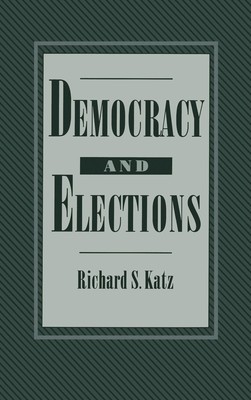
- We will send in 10–14 business days.
- Author: Richard S Katz
- Publisher: Oxford University Press, USA
- ISBN-10: 0195044290
- ISBN-13: 9780195044294
- Format: 16.2 x 23.6 x 2.9 cm, hardcover
- Language: English
- SAVE -10% with code: EXTRA
Reviews
Description
This book addresses the relationship between four values of democratic theory--popular sovereignty, liberalism, personal development, and community--and the electoral institutions used to implement them. After a chapter sketching the electoral institutions of Athens, the Roman Republic, the medieval church, and pre-reform Britain, the book examines what role elections are expected to play in a variety of democratic theories. The major theme of this section is that the four values are largely incompatible; therefore, different choices must be made between them. Part II addresses the empirical consequences of electoral institutions by examining electoral systems worldwide with the objective of finding the institutions most appropriate to each model of democracy. This impressive study provides empirical information on more electoral institutions in more countries than has ever been available in one volume before.
EXTRA 10 % discount with code: EXTRA
The promotion ends in 15d.07:58:43
The discount code is valid when purchasing from 10 €. Discounts do not stack.
- Author: Richard S Katz
- Publisher: Oxford University Press, USA
- ISBN-10: 0195044290
- ISBN-13: 9780195044294
- Format: 16.2 x 23.6 x 2.9 cm, hardcover
- Language: English English
This book addresses the relationship between four values of democratic theory--popular sovereignty, liberalism, personal development, and community--and the electoral institutions used to implement them. After a chapter sketching the electoral institutions of Athens, the Roman Republic, the medieval church, and pre-reform Britain, the book examines what role elections are expected to play in a variety of democratic theories. The major theme of this section is that the four values are largely incompatible; therefore, different choices must be made between them. Part II addresses the empirical consequences of electoral institutions by examining electoral systems worldwide with the objective of finding the institutions most appropriate to each model of democracy. This impressive study provides empirical information on more electoral institutions in more countries than has ever been available in one volume before.


Reviews